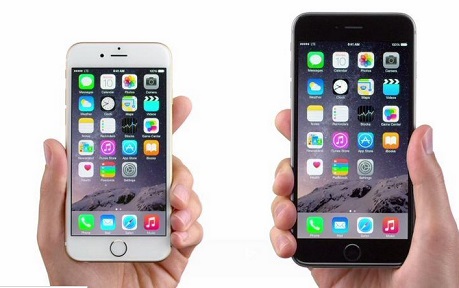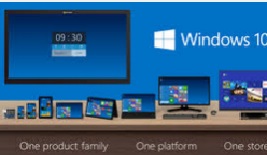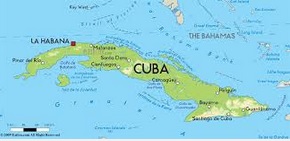My Appearance on WGST's "The Sully Show" 1/30/15 - Tech News of the Week
 Friday, January 30, 2015 at 11:29AM
Friday, January 30, 2015 at 11:29AM Sully and I talk about some of the hot tech topics of the week.
Enjoy:
1. Apple has a huge quarter
Apple had another blowout quarter thanks to its new iPhone 6 and 6 Plus smartphones, which helped the company smash sales records for the holiday season. Apple said Tuesday that it sold a record 74.5 million iPhones during the three months that ended Dec. 31. The latest-model iPhones were introduced in September.
The only product where sales slowed down for Apple was the iPad.
The latest versions of the iPhone, the iPhone 6 and iPhone 6 Plus, launched in September 2014. Cook said that the smaller iPhone 6 was the most popular model during the quarter.
Asked by an analyst if he thinks Apple can sustain the iPhone's incredible growth in future quarters, Cook said he is "very bullish" on the device's outlook. The executive went on to say that the iPhone 6 brought on more new Apple customers than any prior iPhone launch, and even led to the most instances of Android users jumping over to iPhone compared to the last three launches.

2. Windows 10 is coming
Coming around April 15 - free to Windows 7 and 8 users
Following its huge Windows 10 event last Wednesday, Microsoft released a brand-new preview build to the public, versioned 9926. We were told that it'd give us Cortana, Microsoft's AI assistant, as well as a revamped Start menu and updated notifications pane. But as it turns out, that's not even close to summing up all that's new with this build. In fact, 9926 is easily the most substantial update rolled out so far in the beta program, with some UI elements and integral Windows features seeing their first overhaul in multiple generations.

3. The internet comes to Cuba courtesy of a group of 20-something engineers
Some 20-something engineers in Cuba set up a "mini internet" network to serve a few 1000 people.
Internet connections remain illegal for Cuban households, but many of the country's citizens still want to tap into the power of networked information exchange. A group of tech-savvy young Cubans has set up a network comprising thousands of computers to serve as their own miniature version of the internet. They use chat rooms, play games, and connect to organize real-life activities. Cuban law enforcement seems willing to tolerate it (so far), but the network polices itself so as not to draw undue attention.
One of the engineers who helped build the network said, "We aren't anonymous because the country has to know that this type of network exists. They have to protect the country and they know that 9,000 users can be put to any purpose. We don't mess with anybody. All we want to do is play games, share healthy ideas. We don't try to influence the government or what's happening in Cuba ... We do the right thing and they let us keep at it."
Cuba's status as one of the world's least-wired countries is central to the new relationship Washington is trying to forge with Havana. As part of a new policy seeking broader engagement, the Obama administration hopes that encouraging wider U.S. technology sales to the island will widen Internet access and help increase Cubans' independence from the state and lay the groundwork for political reform.
Cuban officials say Internet access is limited largely because the U.S. trade embargo has prevented advanced U.S. technology from reaching Cuba.

4. Announced this week... Google Fiber is coming to Atlanta
Google Fiber 100 is times faster than today's basic broadband speeds. Instant downloads. TV like no other
Plans run $70 and up per month
Google has announced the next group of cities set to receive gigabit fiber infrastructure. They're concentrating on cities around four metro areas: Atlanta, Charlotte, Nashville, and Raleigh-Durham. "We’ve been working closely with city leaders over the past year on a joint planning process to get their communities ready for Google Fiber—and now the really hard work begins. Our next step is to work with cities to create a detailed map of where we can put our thousands of miles of fiber, using existing infrastructure such as utility poles and underground conduit, and making sure to avoid things like gas and water lines. Then a team of surveyors and engineers will hit the streets to fill in missing details. Once we’re done designing the network (which we expect to wrap up in a few months), we’ll start construction." Google also said they're currently looking into Phoenix, Portland, Salt Lake City, San Antonio, and San Jose.
5. The American App Economy Is Now "Bigger Than Hollywood"
Technology business analyst Horace Deidu found an interesting nugget while closely examining an Apple press release from earlier this year: "The iOS App Store distributed $10 billion to developers in 2014, which, Deidu points out, is just about as much as Hollywood earned off U.S. box office revenues the same year." That means the American app industry is poised to eclipse the American film industry. Additionally, Apple says its App Store has created 627,000 jobs, which Deidu contrasts with the 374,000 jobs Hollywood creates.
 640am WGST,
640am WGST,  The Sully Show,
The Sully Show,  tech news,
tech news,  tech segment in
tech segment in  Apple,
Apple,  The Sully Show,
The Sully Show,  WGST,
WGST,  radio,
radio,  tech segment
tech segment 
Reader Comments